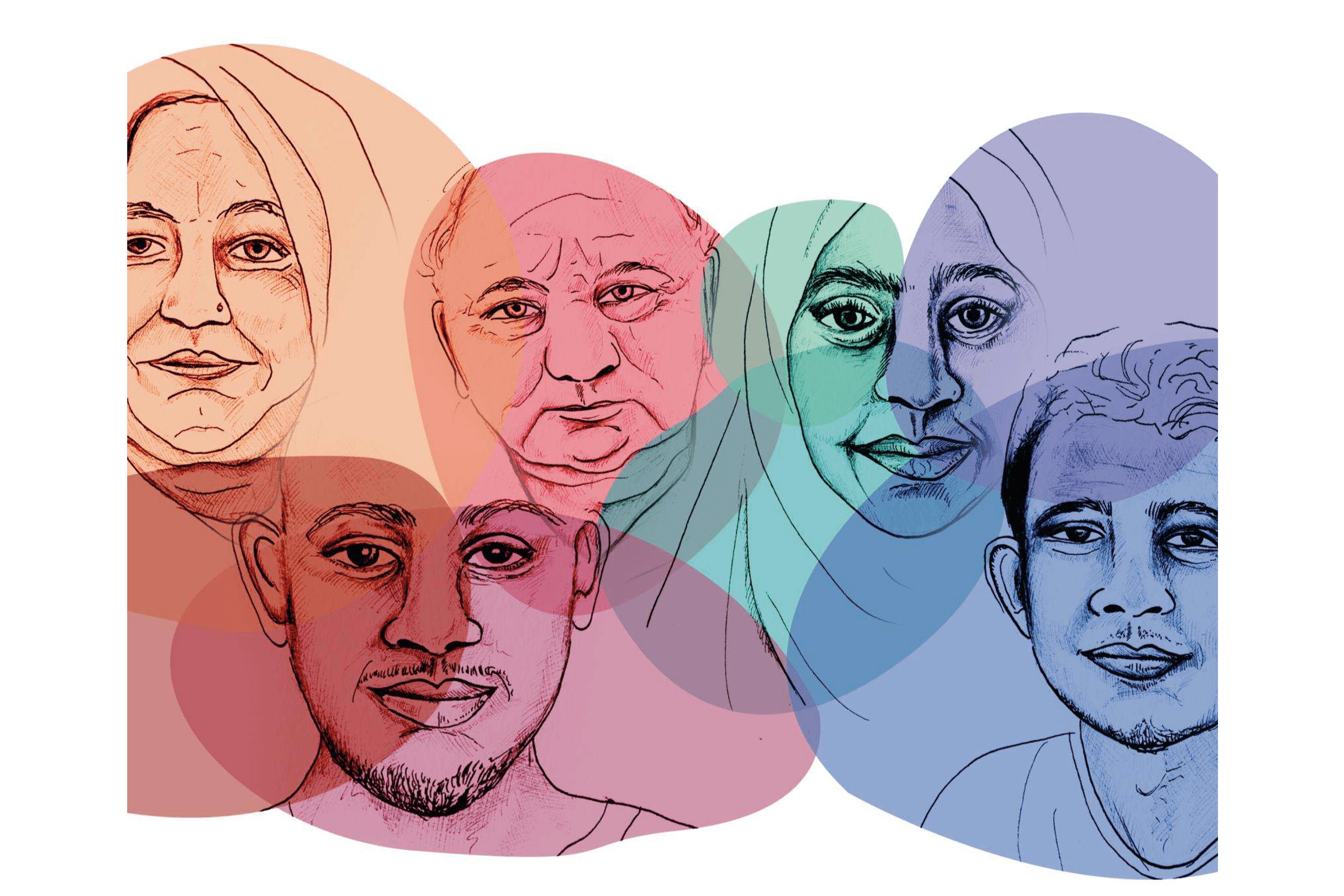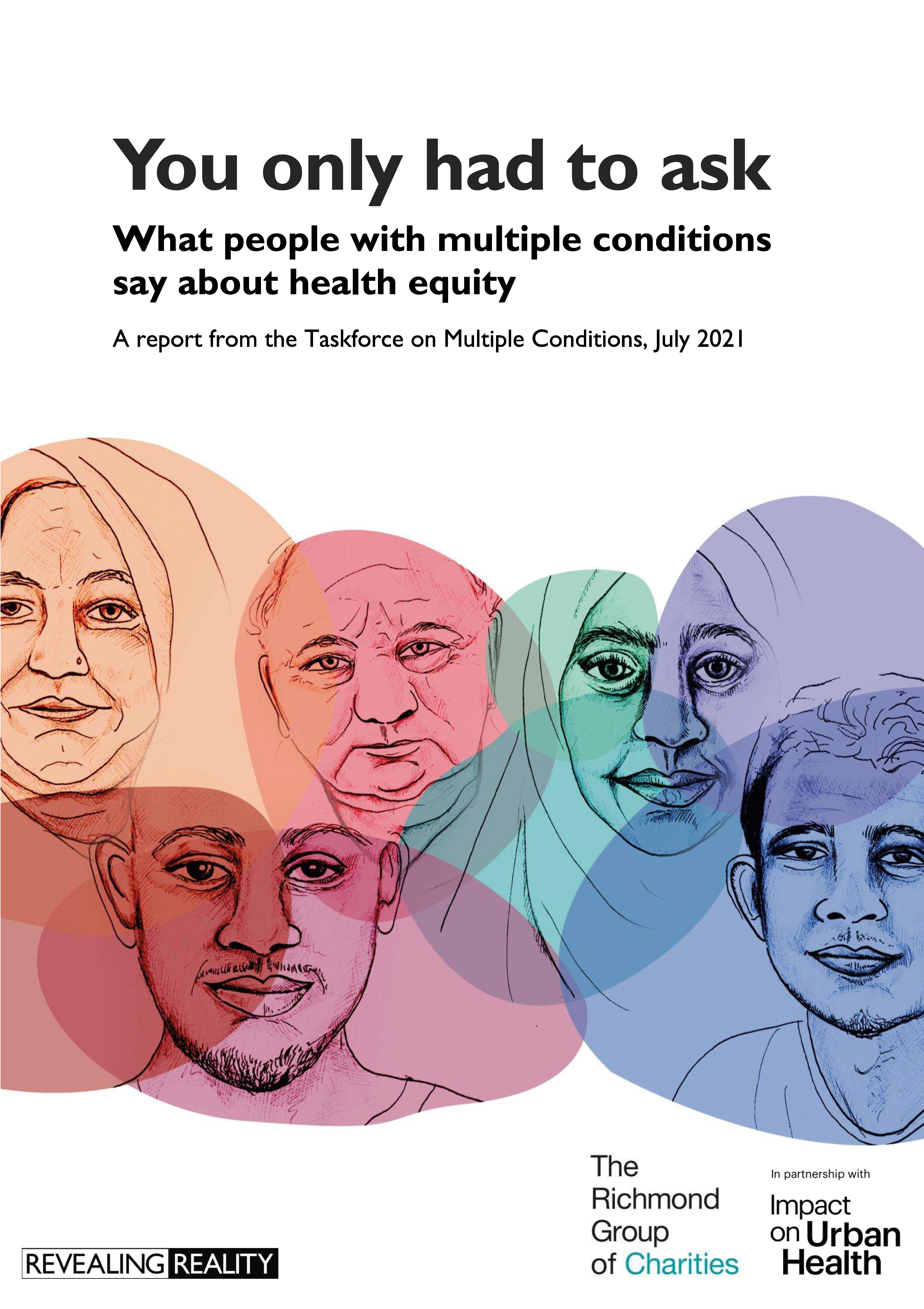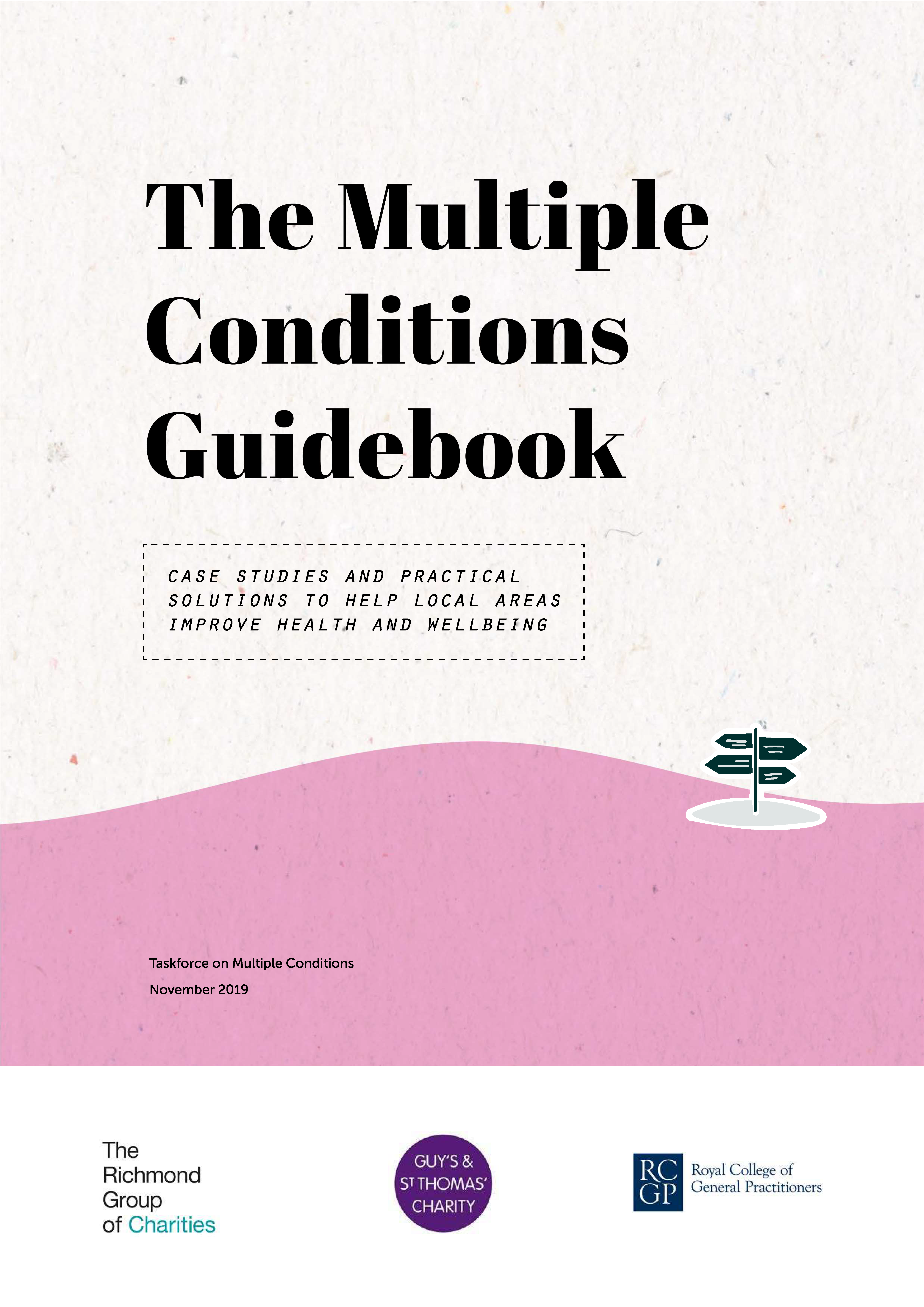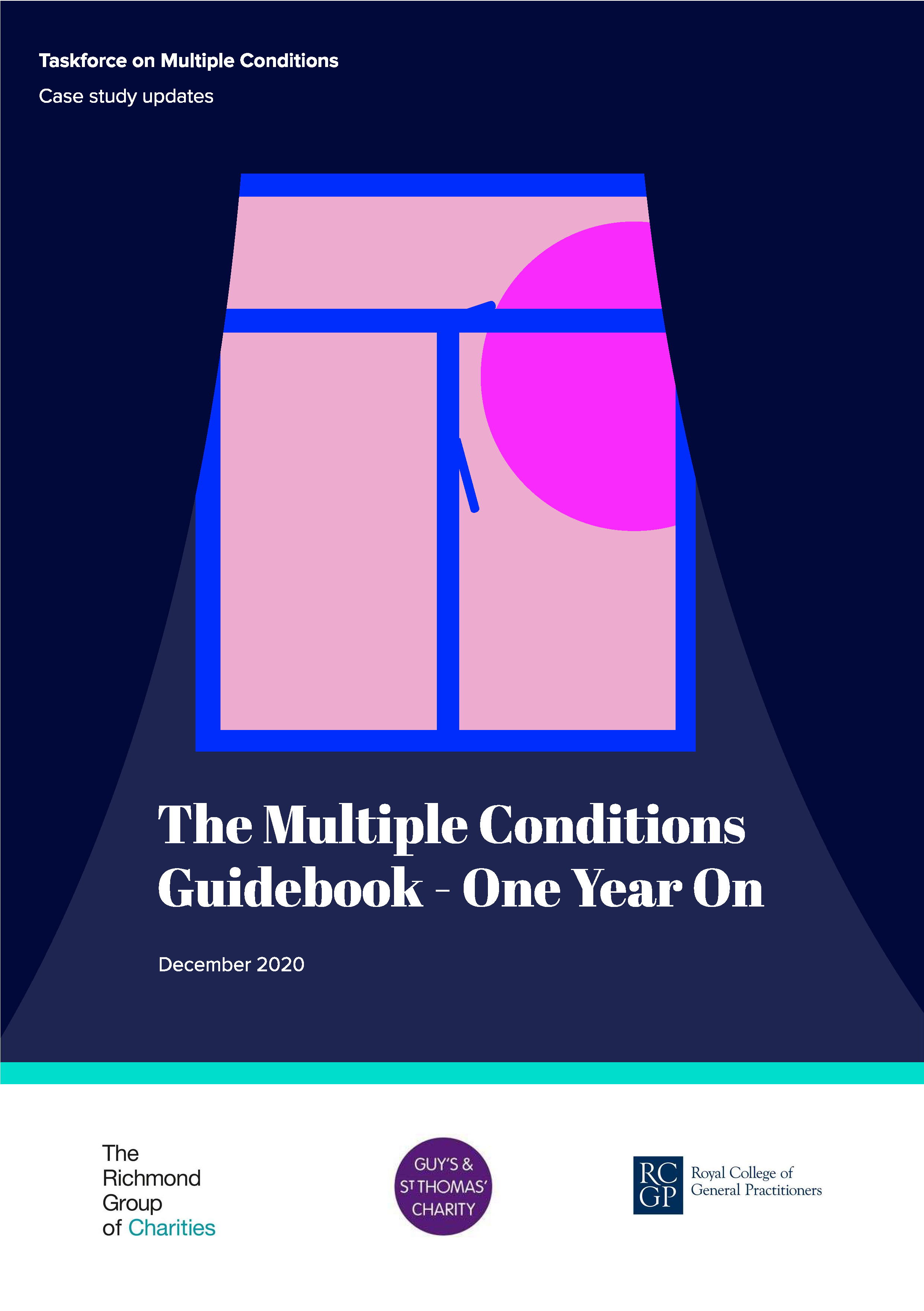The Taskforce on Multiple Conditions was a strategic collaboration between The Richmond Group of Charities, the Royal College of General Practitioners, and Impact on Urban Health (formerly Guy’s & St Thomas’ Charity). The Taskforce was initiated to drive transformational change for the growing number of people living with multiple long-term conditions in England, who are not currently well-served by our disease-siloed health and care system. At the heart of all Taskforce projects was the voice of lived experience – what it is actually like to journey through ‘the system’ with multiple conditions and how can services shift the focus from ‘what’s the matter with you’ to ‘what matters to you?’ The Taskforce ran for 3 years between 2018-2021. The Richmond Group has built on the this legacy through its ongoing strategic aims to ensure the interests and experiences of people living with long term, multiple or complex health needs inform policy and practice change.

“Professionals talk about the disease burden and sometimes the treatment burden of living with multiple conditions. What is rarely examined is the health services burden… we have a system that still works on a single disease model. Different consultants and hospitals don’t communicate. They rely on the patient or carer (you might be both) to connect everyone in an increasingly fragmented system. Despite some great treatments in my 30-year engagement with services, I have too often felt completely disempowered.” – Jane Taylor, Expert by experience, Taskforce on Multiple Conditions Expert Advisory Group


